Tag Archive for: history

Two Time Pulitzer Winner T.J. Stiles on Cornelius Vanderbilt & American Business
T.J. Stiles delves into the life of America’s first tycoon, Cornelius Vanderbilt, exploring his rise to historic wealth in steamboats, shipping, and railroads. He discusses Vanderbilt's legal battles, philanthropy, and enduring legacy, exploring his business competitiveness and wide impact on 19th-century America’s economy.
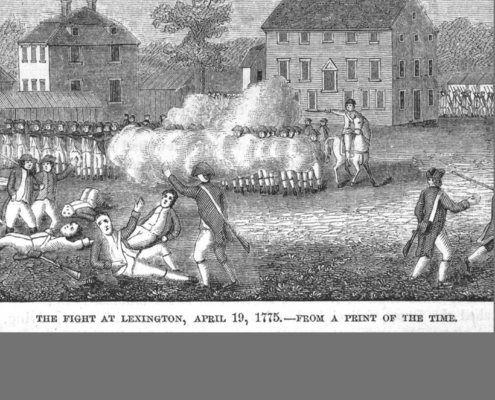
Better Civics Education Is the Massachusetts Way
The fight for more comprehensive civics education in the Bay State has persisted for years. The Legislature's recent override of Gov. Maura Healey’s cut to the state’s modest civics instruction budget suggests that in many in Massachusetts — including parents, teachers, and lawmakers — support strengthening the state’s civics and history curriculum, particularly with mounting evidence of declined student performance across the country.

Francine Klagsbrun on Golda Meir’s Leadership and the State of Israel
This week on The Learning Curve, Francine Klagsbrun, author of "Lioness: Golda Meir and the Nation of Israel," discusses the remarkable life and legacy of the woman who left Kiev as a child, grew up in Milwaukee, emigrated to Mandatory Palestine, was a signatory to the declaration of independence for the state of Israel, and rose to become that nation's fourth prime minister.
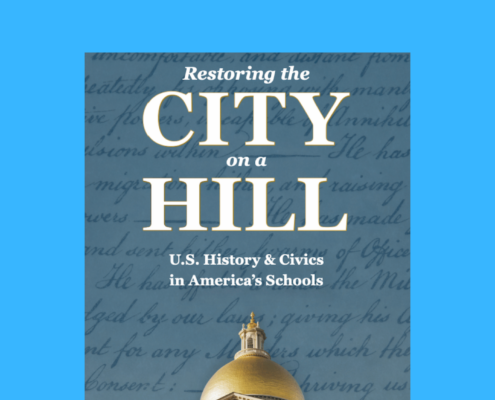
New Book Calls on States to Improve U.S. History and Civics Education
Pioneer Institute is today releasing Restoring the City on a Hill: U.S. History and Civics in America's Schools, which details the decline of history and civics knowledge among students and offers a plan for how states and local school districts can foster understanding of and curiosity about our nation's history.

Massachusetts Residents Score a ‘D’ in Poll Based on U.S. Citizenship Test
When asked a series of questions about how the federal government works that are based on the U.S. citizenship test, Massachusetts residents answered on average 63 percent of them correctly, earning a collective grade of “D” in a poll commissioned by Pioneer Institute and conducted by Emerson College Polling. The result is just over the 60 percent score required to pass the actual citizenship test.

John Steele Gordon on America’s Economic Rise
This week on The Learning Curve, guest co-hosts Charlie Chieppo and Derrell Bradford interview John Steele Gordon, the author of 10 books on business, economic, and technology history. They discuss the keys to America’s transformation into the world’s foremost economic power and its economic prospects for competitiveness in the twenty-first century.

U.K. Cambridge’s Prof. David Abulafia on Oceans, Seas, & Global Trade
This week on The Learning Curve, Professor David Abulafia from Cambridge University discusses the many roles of the world’s oceans in human history and trade. He focuses on how the Pacific, Indian, and Atlantic oceans, along with the Mediterranean Sea, have spurred the rise of civilizations. He concludes with a reading from his book The Boundless Sea: A Human History of the Oceans.

UConn’s Prof. Manisha Sinha on The Slave’s Cause: A History of Abolition
This week on The Learning Curve, UConn Professor Manisha Sinha discusses the influential figures and seminal events that created the abolitionist movement. She describes the legacy of the transatlantic slave trade, Harriet Tubman and the Underground Railroad, the passage of the Thirteenth Amendment, and other key moments in the fight to end slavery.

Johns Hopkins’ Dr. David Steiner on Teaching Wisdom in Schools
This week on The Learning Curve, guest cohosts Charlie Chieppo and Alisha Searcy join Dr. David Steiner for a wide-ranging discussion about the importance of education as a means of transmitting enduring wisdom to young people.
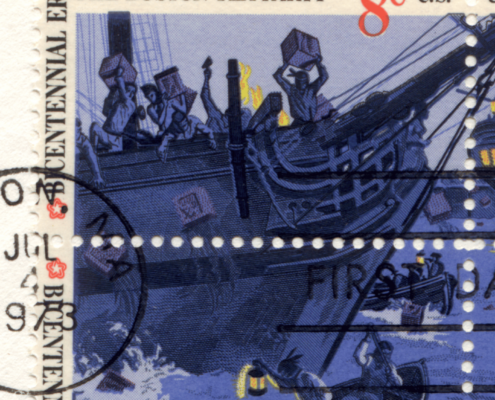
Can Massachusetts Reverse the Decline in U.S. History and Civics Performance?
Massachusetts — home to so much history, including seminal events such as the Boston Tea Party — has much to be proud of in its own students’ history and civics performance. Even as policymakers have supplanted typical curricular standards with “engagement” mandates that students participate in progressive activism, national attitudes towards Massachusetts’ civic education have remained envious.

Donald Graham on The Washington Post, Media, and Educating Immigrants
This week on The Learning Curve, Donald Graham, Chairman of Graham Holdings Company, discusses the history of The Washington Post, his views on changing media in America, and his work in higher education reform and philanthropy on behalf of immigrant youth.

Columbia’s Pulitzer Winner Prof. Eric Foner on Lincoln, Slavery, & Reconstruction
This week on The Learning Curve, guest cohosts Charlie Chieppo and Alisha Searcy speak with Dr. Eric Foner, Professor Emeritus of History at Columbia University and Pulitzer Prize-winning author on Lincoln, the Civil War, and Reconstruction.

U-Hong Kong Prof. Frank Dikötter on China: Mao’s Tyranny to Rising Superpower
This week on The Learning Curve, Dr. Frank Dikötter discusses Chairman Mao Zedong, the Chinese Communist revolution, the Great Leap Forward, China's economic ascent under Deng Xiaoping, and the realities that the U.S. and the West must understand as they seek to engage with China as a rising superpower.

UK Oxford’s Sir Jonathan Bate on Shakespeare’s ‘Julius Caesar’
This week on The Learning Curve, U.K. Oxford and ASU Shakespeare scholar Prof. Sir Jonathan Bate, discusses Shakespeare's timeless play Julius Caesar on the Ides of March. Sir Jonathan explains the Roman lessons for American constitutionalism, including warnings against the dangers of dictatorship and civil war.

Award-Winning UK Author & Filmmaker Laurence Rees on the Holocaust, Auschwitz, and Remembrance
0 Comments
/
To mark International Holocaust Remembrance Day, Laurence Rees, a former head of BBC TV History Programmes and author of The Holocaust: A New History, sheds light on Germany in the 1920s and 1930s and the cultural and political conditions that led to the Holocaust.

Poll Finds Strong Majority of Massachusetts Residents Support Restoring U.S. History MCAS Graduation Requirement
Sixty-two percent of Massachusetts residents support restoring passage of a U.S. history test as a public high school graduation requirement, according to a poll of Massachusetts residents’ attitudes toward education policy commissioned by Pioneer Institute and conducted by the Emerson College Polling Center.

NYT Best Seller Laurence Bergreen on 530th Anniversary of Christopher Columbus Discovering the New World
On this special Columbus Day edition of “The Learning Curve," guest host Pioneer Institute's Mary Z. Connaughton talks with Laurence Bergreen, a prize-winning biographer, historian, chronicler of exploration, and the author of Columbus: The Four Voyages, 1492-1504. Mr. Bergreen discusses what people should know about the life, career, and myths around Christopher Columbus, the courageous, ruthless, and complicated explorer and navigator, on the 530th anniversary of his history-changing and ever-controversial discovery of the New World.
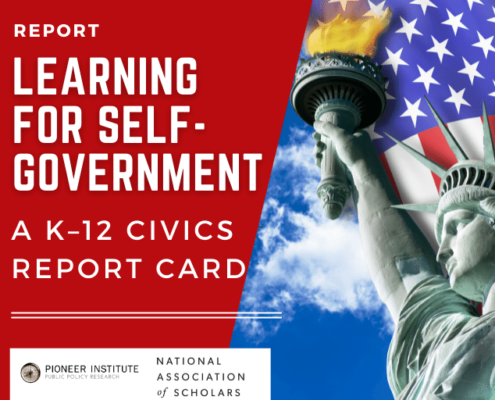
New Study Shows What Works for Civics Education
Americans strongly disagree about how our K-12 schools should teach our system of self-government. Dozens of organizations offer rival civics education resources and many of them don't work. A new study published jointly by Pioneer Institute and the National Association of Scholars offers in-depth evaluations of 15 leading civics programs, grades them on their effectiveness, and offers recommendations for how Americans should build upon these programs.

Award-Winner Prof. David Reynolds on Abraham Lincoln & American Civil War Culture
This week on “The Learning Curve," co-hosts Gerard Robinson and Cara Candal talk with David Reynolds, a Distinguished Professor of English and History at the Graduate Center of the City University of New York. He is the author of Abe: Abraham Lincoln in His Times, selected as one of the Top Ten Books of the Year by The Wall Street Journal and The Washington Post. Professor Reynolds shares what teachers and students alike should know about the culture of Civil War America, primary education in that era, and the wide variety of influences on Lincoln’s thinking and leadership.

Independent Institute’s Dr. Morgan Hunter on Teaching Greco-Roman History to High Schoolers
This week on “The Learning Curve," co-hosts Gerard Robinson and Cara Candal talk with Dr. Morgan Hunter, Research Fellow at the Independent Institute in California, and co-author with Dr. Victor Davis Hanson and Dr. Williamson Evers, of the white paper, Is It Time for a “490 B.C. Project”?: High Schoolers Need to Know Our Classical Heritage.
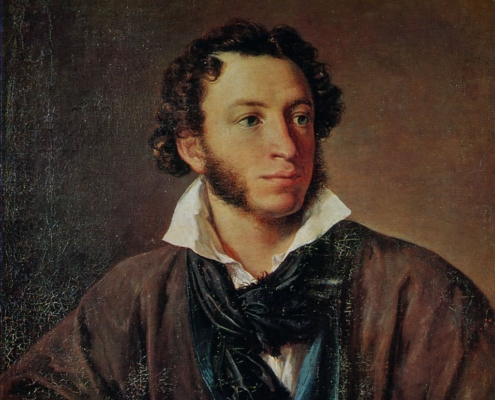
Denying students the opportunity to study classic works of literature leads to a culture of mediocrity
This op-ed appeared in The Springfield Republican and The Lowell…
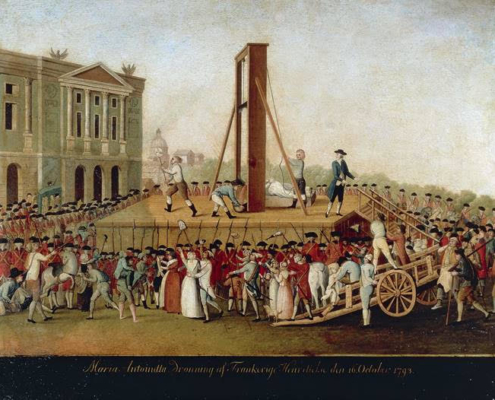
To Keep Our Republic, American Students Must Study The French Revolution
By Jamie Gass and Will Fitzhugh
This op-ed appeared in The…

How Massachusetts Showed the Way on Education Reform
By Jamie Gass & Charles Chieppo
Read this op-ed in The…

Op-ed: Our schools ignore US history at our peril
By Tom Birmimgham | Nov. 30, 2017
State must make good on requirement…
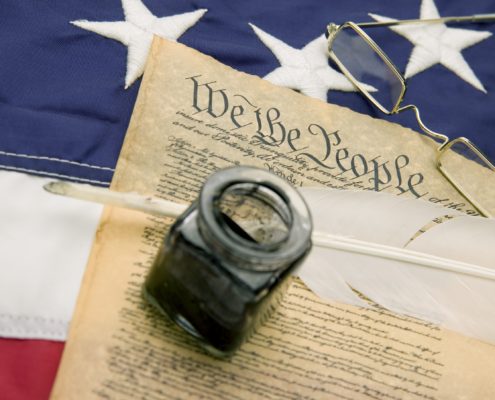
Op-ed: It’s Time to Strengthen—Not Reduce!—History in Our Classrooms
By Tom Birmingham
This op-ed appeared in the print edition…
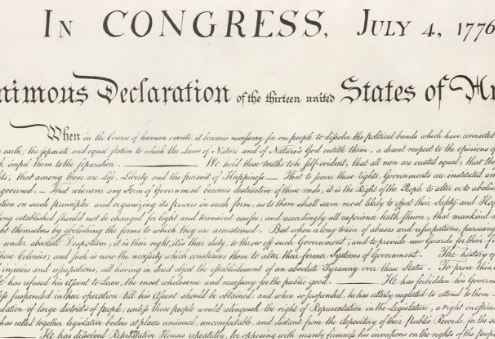
Cursive and Historical Literacy: A Real World Example
In the age of computers and modern convenience, the relevancy…
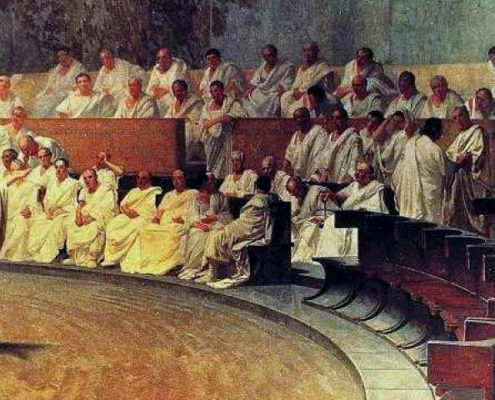
Op-ed: The Great Statesman Cicero Presides Over The Ides Of March Forever
“How I could wish that you had invited me to that most glorious…
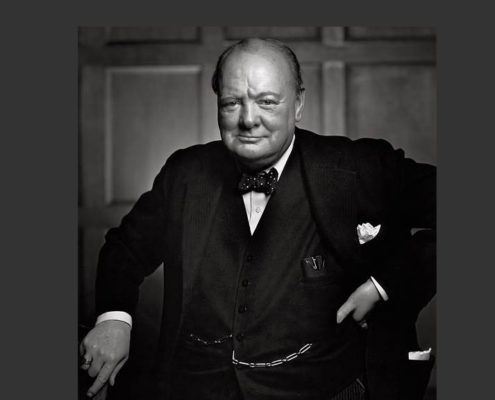
New Report on Advanced Civics for U.S. History Teachers, Preface by Churchill Biographer
Study Recommends That States Require Passage of U.S. History…
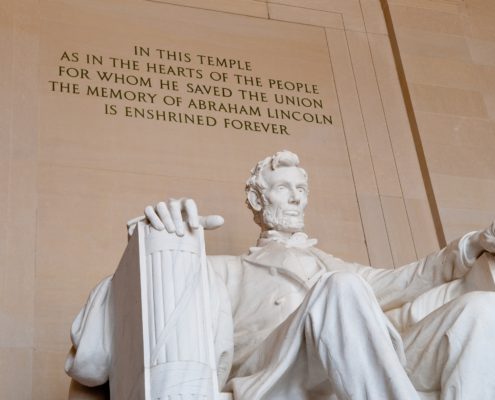
OP-ED: Lincoln’s Assassination and U.S. History
Read the full op-ed on The Springfield Republican Editorial Page and…

An Economic History of Health Care in Massachusetts 1990-2000
Author: Jerome H. Grossman, M.D.
This report examines the…
